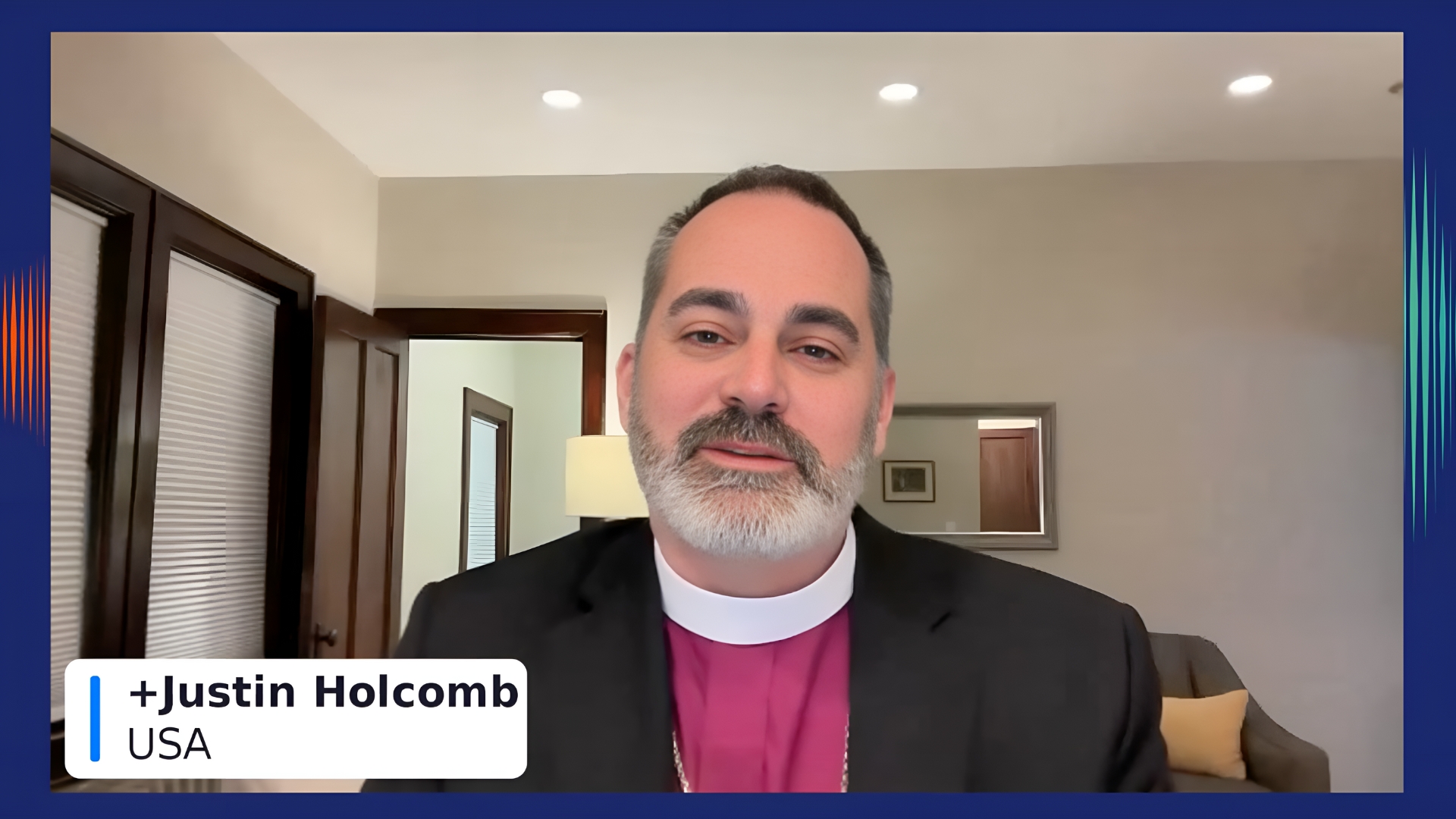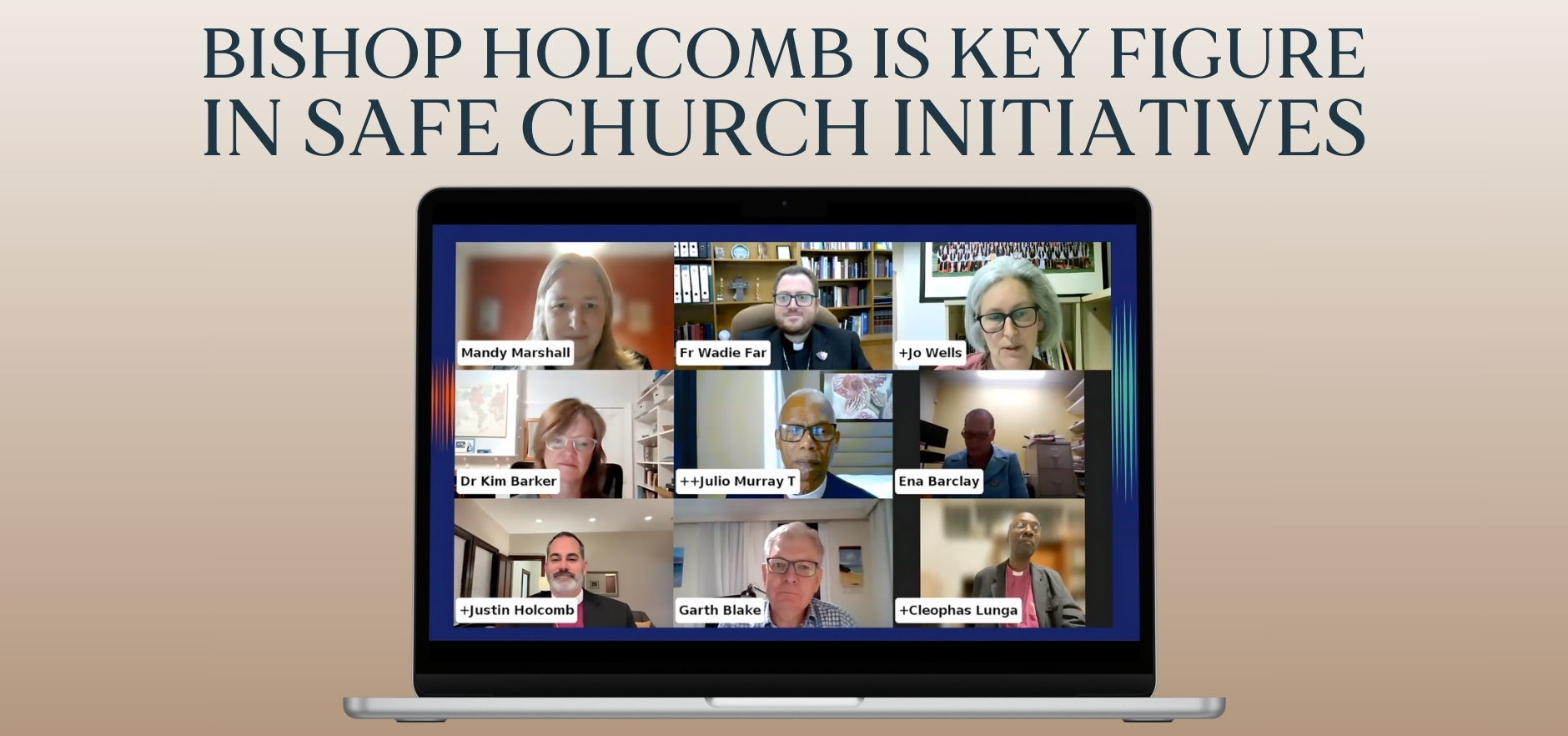Not yet a full year into his episcopacy, the Rt. Rev. Dr. Justin S. Holcomb is already making a difference, not only in the Diocese of Central Florida but also in The Episcopal Church and the broader Anglican Communion. This is especially true as regards what, for Holcomb, is both a long-held passion and an area of expertise: safe church initiatives.
After being elected but prior to his consecration as bishop, Holcomb was invited to serve as a resource consultant for the Lambeth Phase 3 Steering Committee and attended its meeting held Feb. 28-March 3, 2023, in London. Lambeth Phase 3 involves a Steering Committee charged with bringing the initiatives born from the 2022 Lambeth Conference into the life and ministry of the Anglican Communion.
Holcomb was also one of two Lambeth Phase 3 Steering Committee bishops who participated in the fourth of a series of webinars on the Lambeth Calls sponsored by the Episcopal Ministry Team in collaboration with the Anglican Communion Safe Church Commission. Offered in two sessions held April 17 and 18, it focused on the safe church initiative and included 290 attendees from 50 countries as well as contributors representing the church in Jerusalem, Jamaica, the Solomon Islands, Zimbabwe and the U.S.
The webinar, designed especially for bishops and spouses who attended Lambeth 2022, was also open to additional church leaders desiring to take the Lambeth Call forward in their setting. Convened by the Rt. Rev. Jo Bailey Wells, bishop for Episcopal ministry and deputy secretary general in the Anglican Communion, and moderated by the Most Rev. Julio E. Murray, primate of the Anglican Church's province of Central America, it covered five topics: The Lambeth Call on Safe Church, the work of the Safe Church Commission, why building a safe church matters, how to safeguard people in Anglican Communion churches and respond to safeguarding concerns, and safe church resources and guidelines.

Bishop Holcomb addressing Lambeth Phase 3 Safe Church webinar participants from around the world. | Photo: Screenshot
Holcomb, who served as what The Living Church described as "a leading voice" in the webinar, shared a powerful testimony of his own experience as a survivor of sexual abuse, the importance of safe church initiatives to him as a bishop and the specifics of his work with these initiatives in Central Florida. Watch a video of the meeting here and download other Safe Church Commission resources.
“Safe church initiatives matter deeply to me and my wife, both personally but also professionally and pastorally,” the Central Florida bishop told attendees. “It’s not an exaggeration to say that abuse is a worldwide epidemic. … Just some of the statistics tell us 1 in 4 women, 1 in 6 men, are or will be survivors of sexual abuse in their lifetime. One in 5 children are survivors of sexual abuse before they’re adults; 1 in 5 women, 1 in 20 men will suffer intimate partner violence or domestic abuse, and these statistics probably do not reflect how prevalent abuse really is.”
He also made clear the connection between abuse prevention and response and his greatest passion: the gospel. “The one thing the church has to offer our broken and weary world – that no other religion, government, organization or movement offers – is the gospel,” he said. “As a survivor, I take great comfort in knowing that the deepest message of the ministry of Jesus and of the entire Bible is the grace of God to sufferers and sinners.
“Many survivors feel terrified, fearful, helpless, humiliated and confused,” Holcomb added. “The gospel addresses these effects of abuse. And the Anglican tradition and liturgy contains rich resources for trauma-sensitive ministry that are drawn from the good news of Christ in the scriptures.”
Garth Blake of Australia, Chair of the Safe Church Commission, echoed Holcomb’s emphasis in comments after the webinar. “It is important for the mission of the Anglican Communion and its witness to Jesus Christ that it continues to take active steps to protect its people from abuse and to respond compassionately and justly where abuse occurs,” he said. “The Safe Church webinar has been a significant step in this process.”
“The subject of safeguarding is so vital yet so challenging to the health of our churches,” Wells said. “It was so encouraging to share stories and principles of good practice from across a variety of countries and cultures. The contexts are so different, and yet we have so much to learn from one another in this work.”
Holcomb has also accepted an invitation from Blake to be part of the leadership of a team developing a conference titled “Leading Safer Churches: Power and Vulnerability in Church Life.” Hosted by the Church of the Province of Central Africa, it will take place Sept. 6-10 in Bulawayo, Zimbabwe. The conference represents one initiative of the Safe Church Commission to develop the capacity of bishops and provincial Safe Church representatives to lead the implementation of Safe Church work in their provinces.
Holcomb’s concern for the safe church initiative begins and ends in the Diocese of Central Florida. Here, he is putting together a Safe Church Commission and offering, in cooperation with GRACE, Godly Response to Abuse in the Christian Environment, a free Safe Church training event: “Shedding Light on Abuse: Prevention and Response.” To be held on Thursday, May 16, at the Cathedral Church of St. Luke, Orlando, the training will delve deep into the topic of abuse prevention and response within local faith communities with an additional focus on strategies for effective safeguarding. Find more information via a downloadable flyer at this link.

